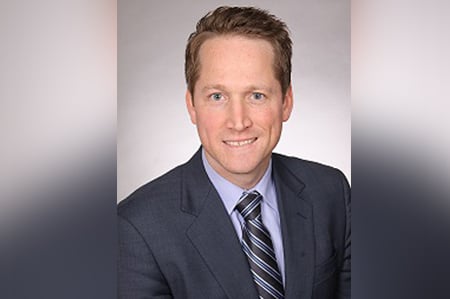He's all about the realtors

The central focus for Jeremy Durkin’s business is real estate agents.
Durkin, a mortgage consultant at Trident Mortgage, has been in the business for 20 years, the first half of which he primarily did refis. He distinctly remembers a moment after a rate hike in January 2011 when he had to decide whether to quit the business entirely or shift to purchase. He figured the best way to get purchase business was through realtor referrals, so the decision was an easy one. Today, he puts realtors above all else.
“It’s important that [buyers] are happy throughout the mortgage process when they’re buying a house, but one of the main reasons that you need the buyer to be happy is because they’re going to be giving feedback back to the agent, and the agent in most cases is going to be the continual referral partner, not the buyer,” Durkin said. “They will continue to use you in the future if the client they referred you was happy with the process.”
There’s a business-building aspect to that as well. If one happy referral partner tells other realtors in their office about their positive experience with a particular originator, it can pay off in spades.
Durkin suggests originators who are stuck at their current level of production build on this tactic. Rather than expending effort bringing new partners into an originator’s own sphere of influence, originators should use existing partners to be their evangelists.
“If you do a better job supporting the agents than the other lenders in the marketplace, meaning you’re outperforming the competition, you should lean on those relators to refer you to other realtors in their office,” he said. “That’s an easy way to double, even triple your business.”
Durkin’s team did 585 units in 2018— the most they’ve ever closed in one year—for a total of $168 million. Still, they could’ve done more, and that’s not a pie-in-the-sky statement. He said that they weren’t overworked, no one was consistently or overly stressed, and the team workload is divided in such a way that if he or anyone out of the office, there’s complete coverage. The flow is good, and that means they can handle more loans.
Delegation is important, but even more important is that team members are able to self-delegate. Durkin’s team is set up so that when communication comes in, it goes to everyone. Rather than one person forwarding a message to the appropriate contact or Durkin himself having to delegate who does what, everyone sees the communication, and everyone is aware of their responsibilities in propelling the situation forward. Building appropriate and effective systems and aligning team members within those systems can be done even with a small team.
“That was really the game-changer for myself that allowed me to go from 200 to 300 to 400 to 500 units and really not be totally overloaded with work. It’s a healthy workflow for everybody,” Durkin said. “Once you have everything in place and you have the team structured with the roles identified, you can really run fast and put up some big numbers.”
Learning how to harness those building blocks, processes, and people are how he’s managed to become a top producer. Falling in with the right lender that has the best programs and technology are important, he says, but in the end, they’re not all that different. New technology isn’t going to make or break an originator’s business in the long run. Over time, that all levels out.
“If there’s a new CRM that another lender has, that’s not really crucial or needed because we’re going to have that in three months. If we have Day 1 certainty, for example, who cares; the other lenders are going to have it three months or four months later . . . same with most loan programs; if another lender has it first, chances are you will have it shortly.”
Instead, Durkin said, originators should align themselves with a lender that is willing to run with tight margins to be able to remain competitive with rates, a sales-focused ops center, and flexible underwriting that focuses on hitting all of the contract dates. All else being equal, the differentiators for originators are knowing the particulars of their individual market, as well as where they can enter and gain market share.
Durkin operates out of Philadelphia. Within that general region, there are “vastly different” needs and situations, so he’s positioning himself to be the go-to mortgage professional to serve the wide variety of needs in the region. He’s getting more aggressive in 2019 with his marketing campaign and participating in a lot more events in order to remain visible with realtors and enhance his current relationships.
It’s that constant revision and even reinvention that has kept Durkin in the mortgage business for two decades, and the competition to do better with each and every file keeps him excited about his work.
“The gratifying thing about the mortgage business is that it’s a swift process. You’re not working on a project over the course of a year. You’re helping somebody out to buy a house, pivoting through a competitive market to earn the business, maneuvering your client through a tedious documentation-heavy process, monitoring and hitting daily deadlines, all while delivering every single time for the client and the referral partner to achieve a smooth quick closing for the buyers, who many times just bought their dream home.”
For strategies from top originators, come to Anaheim on April 4th for our Power Originating session featuring Shant Banosian, Ben Anderson, and Oleg Tkach.



